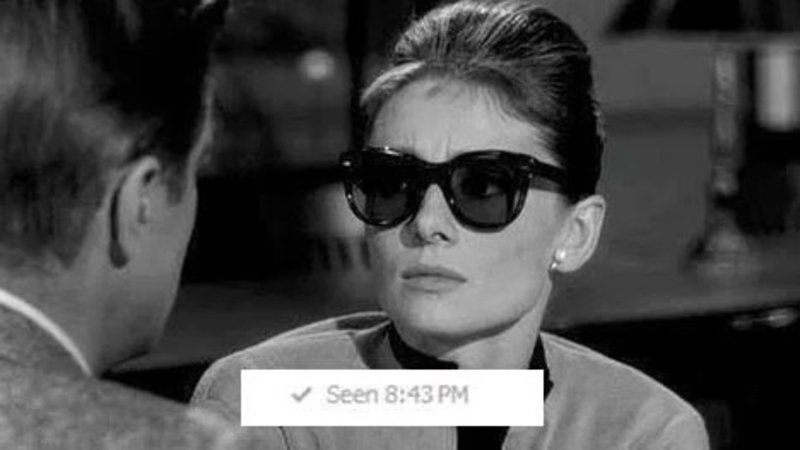Left on Read

This post is a review of @baljis's Founding vs Inheriting. You should read it first.
We all know that feeling. You send someone a message and you see they've read it. But no response.
Balaji's article laments at the frustration of being a technological progressive in a world of slow moving corporate, governmental and institutional ineptitude. Customers, citizens and people are asking for more of these institutions, but they are effectively being left on read.
Watching governments and incumbent powers deal with COVID has been like watching a car crash in slow motion. Excruciating, but you can't stop watching. (or checking the news.) The systems we have now, are designed with a specific fault tolerance in mind. They are overrun with new and old problems.
A glacial pace on policy, governance and innovation in the institutions that are too big to fail is coming head to head with a new world. One that is changing too quickly for these traditional institutions to keep up with.
What is the response?
Innovation, Founders, New ideas.
Balaji posits that founders are more resilient to change than inherited powers. He's right. Old incumbents have been knocked out of the ring time and time again, even when their purpose matches that of a modern company. Why didn't Random House start Google? They were in the business of organising and delivering information. It takes a new mindset, and greater understanding to be adaptable.
I think this come's down to how business is valued. As the E-Myth pointed out in 1986, a business is simply a repeatable method for making money. You don't have to be a founder or an innovator, you just have to follow the formula. BUT if you're simply following the formula you probably can't reinvent the formula to be successful in changing circumstances.
Legacy
has a bit of a reputation in tech. It means old, but difficult to replace because of it's wide use. It's the systems you must cater for because they don't support newer features. It costs money to completely re-architect systems, and it's often cheaper to simply keep modifying old ones until they collapse.
BUT We couldn't have built a modern airliner by continuously modifying a sailboat. Some systems need to be designed from the ground up.
Legacy also means what you leave behind. New founders, Ideas and Innovations aren't an insult to old ones, they are the product of them. To expand Balaji's analogy of partial bilingualism:
If children can't write the scripts of their parents, if their access to ancestral culture is read-only, then that culture won't be replicated.
The culture itself won't be replicated, but it will combine with a larger culture to build something new, something better. For example, words and phrases like: "No can do", Brainwash, Ketchup, Gung-ho, Tea, Wok and a heap more come from Chinese. Those are just words. In our chaotic world, even a tiny perturbation can drastically effect the outcome.
We get to choose.
The great thing about this very moment in history is we can learn from the past. We can see the failings of all the old ideas, why they don't work anymore and what could work better. In a quote that has come to symbolise scientific and technological progress:
“If I have seen further it is by standing on the shoulders of Giants” - Issac Newton
To that end we should steal like an artist, pick and choose the things we want to replicate, combine them with new ideas, and throw out the ones that we don't need anymore.
New Ideas
Balaji ends on the fact that we need new ideas. What isn't mentioned is where these new ideas come from. True innovation rarely comes out of thin air. We are always building on something else, combining ideas or applying new tech to an old industry. It just so happens that the best ideas have emergent properties the inventor could never had predicted. Even Bitcoin is a combination of financial ledgers, distributed applications and computer science. - BUT - the innovation that cryptocurrencies has enabled goes far beyond even Satoshi's imagination.
Go down the rabbit hole, follow your genuine curiosity for truly unique ideas. Learn from the past and help create a better future.
